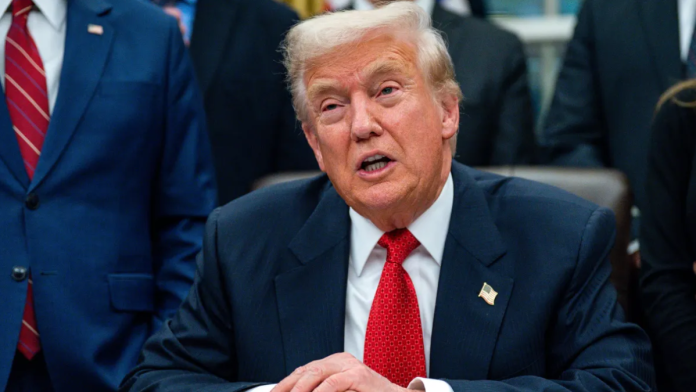President Donald Trump has signed a new bill that requires the Department of Justice to release all unclassified files related to Jeffrey Epstein within 30 days. Trump announced the signing on Truth Social instead of holding a public ceremony at the White House. This drew attention because he had previously called the effort to release the files a “hoax.”
The bill had strong bipartisan support. In the House, only Rep. Clay Higgins voted against it. Later, the Senate sent the bill to Trump by unanimous consent. Lawmakers from both parties had pushed for months to make these documents public, saying people deserved transparency in a case that has raised many questions.
On Sunday, Trump changed his stance on the bill and urged House Republicans to vote for it. He said, “We have nothing to hide,” even though he continued calling the controversy a “hoax” created by Democrats.
What the new law requires
Last week, Bondi agreed to look into Epstein’s connections to Democrats and others after Trump requested it. At a Wednesday news conference, she said “new information, additional information” had appeared, but did not explain further, increasing public curiosity about the files.
Earlier, the Justice Department had stated it “did not uncover evidence that could predicate an investigation against uncharged third parties.” When asked what had changed, Bondi again referred to new information without giving details.
Public interest grew even more after Republicans on the House Oversight Committee released over 20,000 pages of documents from Epstein’s estate. This followed Democratic lawmakers publishing emails from Epstein that mentioned Trump. In a 2019 email, Epstein claimed Trump “knew about the girls,” though he did not accuse him of wrongdoing. A 2011 email described Trump as “that dog that hasn’t barked” and said he “spent hours” at Epstein’s home with a redacted individual labelled as a “victim.”
Karoline Leavitt, the White House press secretary, responded at a briefing, saying the emails “prove absolutely nothing other than the fact that President Trump did nothing wrong.”
Trump’s tariffs rollback targets cost-of-living crisis; coffee and cocoa prices expected to drop
Tensions within the Republican Party
The handling of the Epstein files created unusual divisions within Trump’s own party. Some Republicans supported the bill early, including Rep. Thomas Massie and Rep. Marjorie Taylor Greene. Greene backed the effort strongly and even had a public falling-out with Trump over the issue. Other Republicans hesitated or disagreed about the release of the records.
Trump’s mixed signals added to the tension. At first, he dismissed the bill and criticized the push for transparency. Days later, he urged Republicans to support it. When announcing that he had signed the bill, Trump again called the issue a “hoax” and said Democrats were trying “to try and distract” from his administration’s achievements.
Despite these disagreements, the bill passed quickly once Trump reversed his stance. It became one of the rare moments where Republicans and Democrats worked together with strong unity.
Survivors and families react
Survivors of Epstein’s abuse and their families welcomed the signing of the bill. On Tuesday, survivors joined lawmakers at a news conference on Capitol Hill, asking Congress to release the files. One survivor, Jena-Lisa Jones, asked Trump to “please stop making this political.”
The family of Virginia Giuffre, one of Epstein’s most well-known accusers who died by suicide in April, released a statement after the signing. Sky Roberts and his wife Amanda, along with Danny Wilson and his wife Lanette Wilson, said the moment was “nothing short of monumental.” They praised the courage of survivors and said they were waiting “eagerly” for the release of the files from the Department of Justice.
Jeffrey Epstein pleaded guilty in 2008 to state charges of soliciting prostitution with a minor. He died by suicide in jail in 2019 while awaiting trial on federal sex-trafficking charges. His case has remained a major topic of discussion, and now, with a 30-day deadline, all unclassified DOJ files must soon be released.


